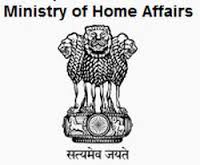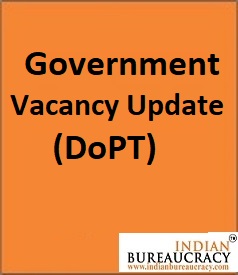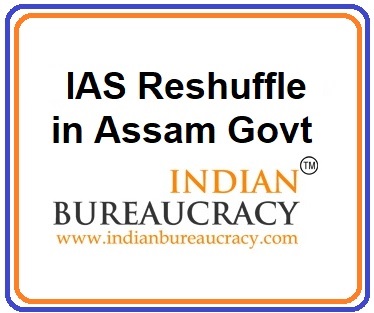Real Estate Regulation Bill which has received the nod from the Parliament Select Committee will be posed to the Cabinet shortly “and I propose to table it in the next session of Parliament,” stated Mr. M. Venkaiah Naidu, Minister of Urban Development, Housing and Urban Poverty Alleviation and Parliamentary Affairs, Government of India, here today at FICCI’s Smart Cities Summit 2015 on the theme ‘100 Smart Cities: Mission Transform-Nation’.
Mr. Naidu said that the government is already in the process of accelerating reforms and transforming India. A number of crucial Bills including that for introduction of GST, raising FDI limit in insurance and enhancing employment generation (through amendments in Factories Act and Apprentices Act) are expected to be taken up for approval in the next session of Parliament. These Bills are important from the perspective of spurring growth and employment, which is necessary for faster poverty reduction, he added.
Mr. Naidu said, “We have given time till December 15 this year to urban local bodies to submit their city level Smart City Plans. These plans will be evaluated in the second stage of City Challenge Competition for picking up the first batch of 20 cities based on rankings for financing during this financial year. We would like to announce these 20 selected cities based on merit alone in January and release funds.” He said that making smart cities is more than providing business and investment opportunities and required infrastructure. It is all about changing the ways of our thinking and acting for building cities that are for the people. “We need cities that can sustain themselves through judicious use of precious and scarce natural resources ensuring ecological equilibrium. The task of building smart cities is no doubt challenging but can be achieved if all stakeholders rise to the occasion with innovative thinking, planning and execution,” he said and added that next year 40 cities would be selected on the similar lines, followed by another 40 cities in the subsequent year. Mr. Naidu said, “We in the Government are doing everything that we need to do. It is now time for industrial and trade bodies like FICCI and others to do your bit in the larger interest of our country.”
Mr. Naidu stated, “The Smart City Mission has generated as much interest abroad as in our country. Global companies from a large number of foreign countries have participated in the bidding process for selection of these consultants. Companies from 14 countries –The US, Canada, United Kingdom, France, the Netherlands, Spain, Italy, Belgium, Norway, Japan, Singapore, Hong Kong, South Africa and Abu Dhabi have been selected for preparation of city level Smart City Plans for 42 Mission cities.” “Think of Ecorys Nederland BV of Netherlands coming forward and winning the bid to prepare Smart City Plan for Bhagalpur in Bihar, Tractebel Engineering SA of Belgium being associated with smart city plan of Dharmashala in Himachal Pradesh, Haskoning DHV Consulting of Netherland with the little known Dahod in Gujarat, Mott MacDonald of United Kingdom with Jaipur, Deloitte Touche Tohmastsu of Japan with Bidhannagar in West Bengal, Data World of South Africa with remote Namchi in Sikkim etc. A total of about 30 foreign companies are partnering 42 Mission cities in the task of preparation of smart city plans. This speaks for the global interest in our Smart City Mission,”Mr. Naidu pointed out.
In his keynote address Dr. Subhash Chandra, Chairman, Essel Group & Zee Network, said that smart cities were run on smart technologies and needed smart people to run these operations. He added that the Government of India was providing a corpus of Rs. 1000 crore to Smart Cities but there was a need to raise funds from other sources. The State Government and other stakeholders need to partner with the Centre to provide good, wholesome and all-encompassing smart cities. Also the initiative should be collaborated with ‘Make in India’ so that the country derives its own model of a smart city. Dr. Chandra added that electricity was one of the main drivers of a smart city and there was a need to reduce loss of power in distribution which today stands at 30 per cent. Hence, power distribution sector needs to undergo a reform. Dr. Jyotsna Suri, President, FICCI, said, “The mission of 100 smart cities to transform the nation is a new and bold initiative of the Government of India. Urbanization has complex environmental, economic and social issues. Thorough planning, efficient financial and administrative structuring is required to accomplish the Smart City initiative. We also need solutions to reinvent our existing cities to make them Green, inclusive and IT friendly.” Dr. Suri said, “This Summit brings together eminent industry experts, government and other stakeholders to ideate, explore and debate the challenges required to develop sustainable vibrant Smart Cities. FICCI has also created an Urban Infrastructure and Smart Cities Committee whose objective is to forge partnership between Government and industry to develop smart cities. FICCI has recently signed an MOU with the city of Pune to develop Pune as a smart city through mobilization of industry expertise and resources.”
Mr. Purushottam Kaushik, MD – Sales, Leader – Country Transformation, Cisco India & SAARC, said that existing cities needed to become smarter to meet the aspirations of citizens. Also, an integrated long term planning view was needed with phased execution with timelines for socially, environmentally and economically sustainable cities. He added that the financial view must focus on cost improvement and revenue monetization. Also, learning from global cities was needed for absorption of technology. In his theme address Mr. Pradeep Puri, Chairman, FICCI Urban Infrastructure & Smart Cities Committee & Chairman, IL&FS Water Limited, said that for financing smart cities the government’s grant needed to be complemented with funds from the state governments and local bodies. To help the Centre with the financial aspect of funding, FICCI had prepared a paper‘Financing of Smart Cities’ as it was felt that the EPC contract gave suboptimal results and should be phased out and new financing methods were needed. He added that a structural response was need for urbanization. In his vote of thanks by Mr. NSN Murty, Director & Leader, Smart Cities, PwC India, said that PWC and FICCI was working on a document which in detail discusses frugal solutions that could be employed for creating smart cities. For social inclusiveness, it was imperative that besides advanced technology, frugal solutions are put in practice as this is a citizen driven programme. He added that smart city initiative also needed exemplary area based project with long term vision.





